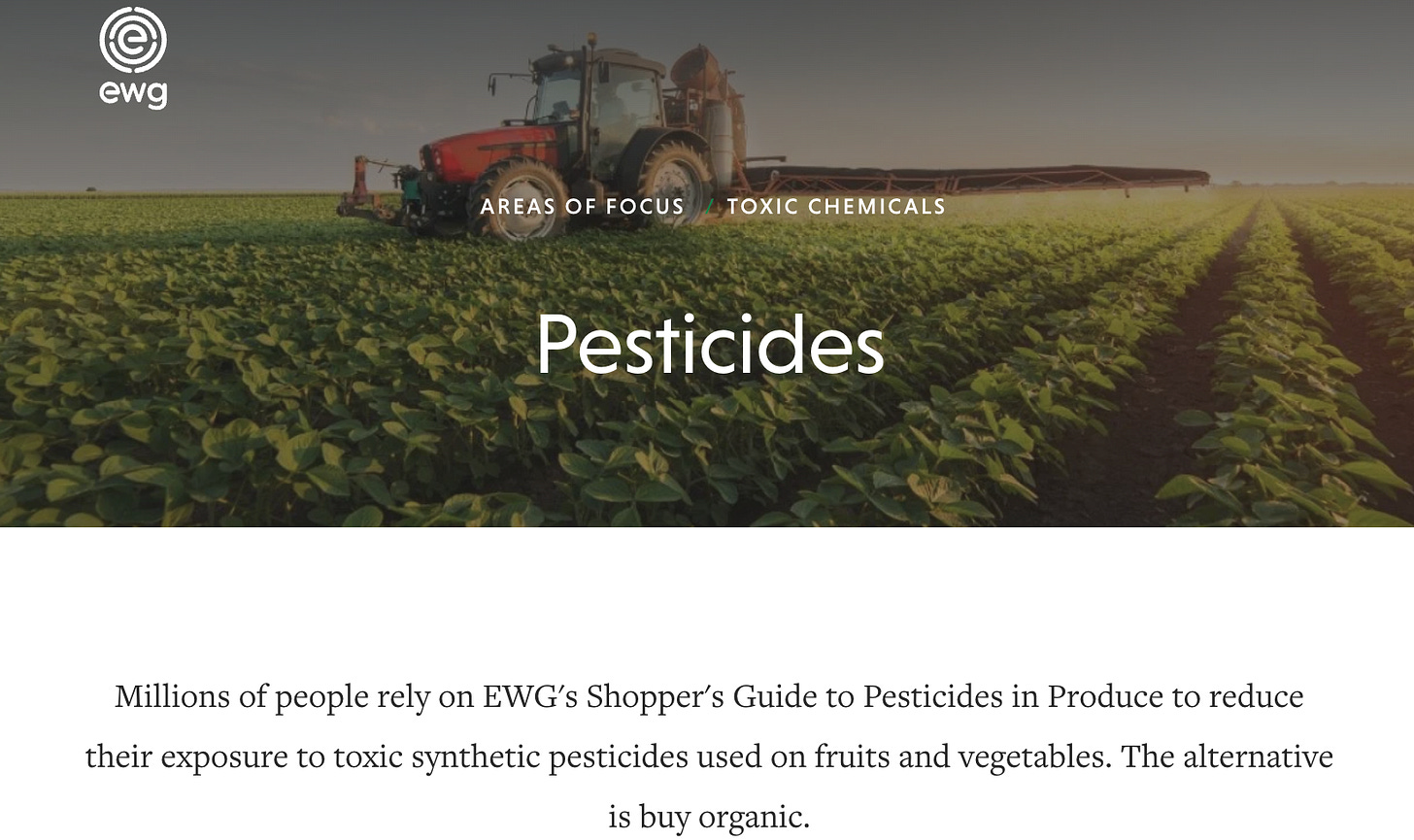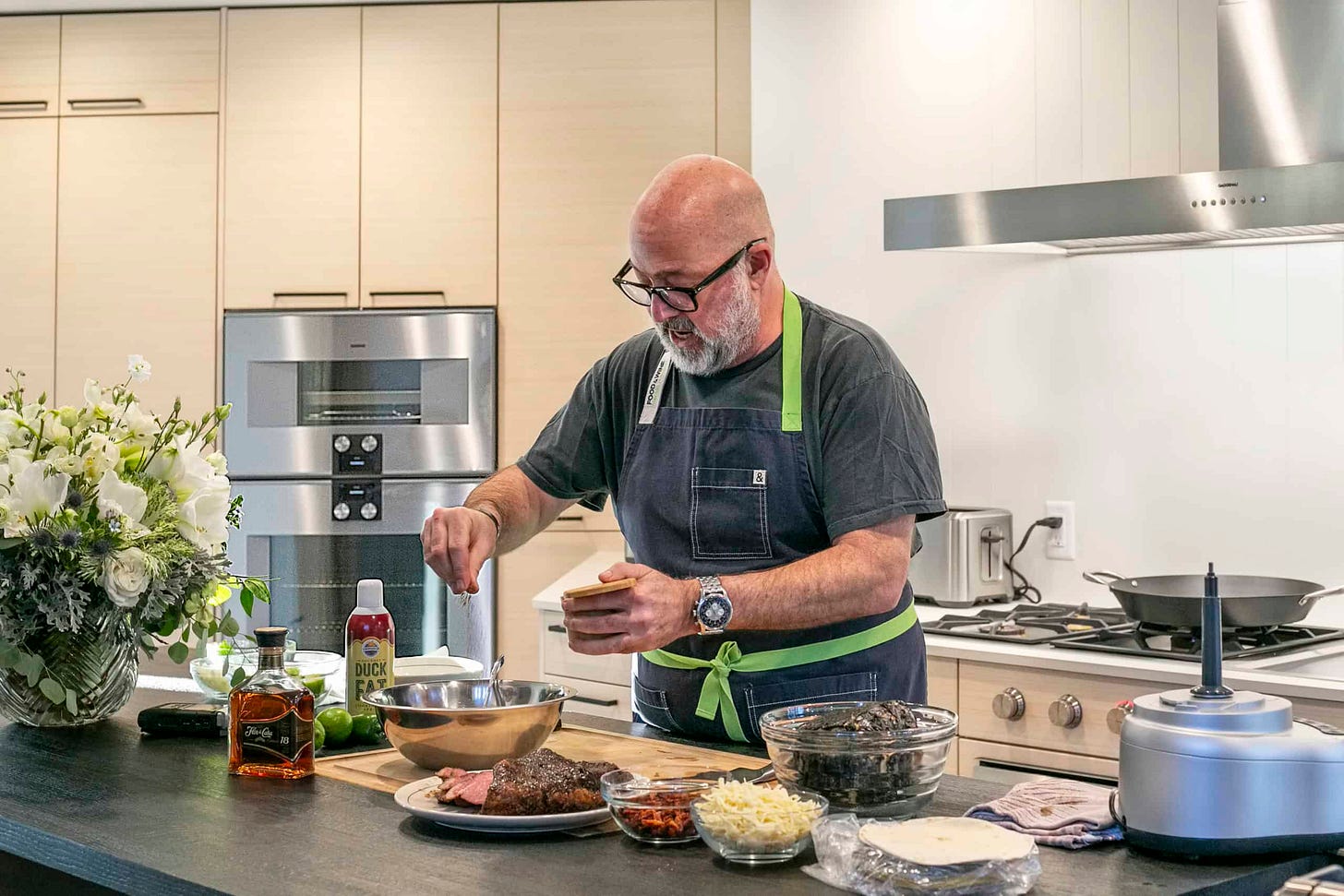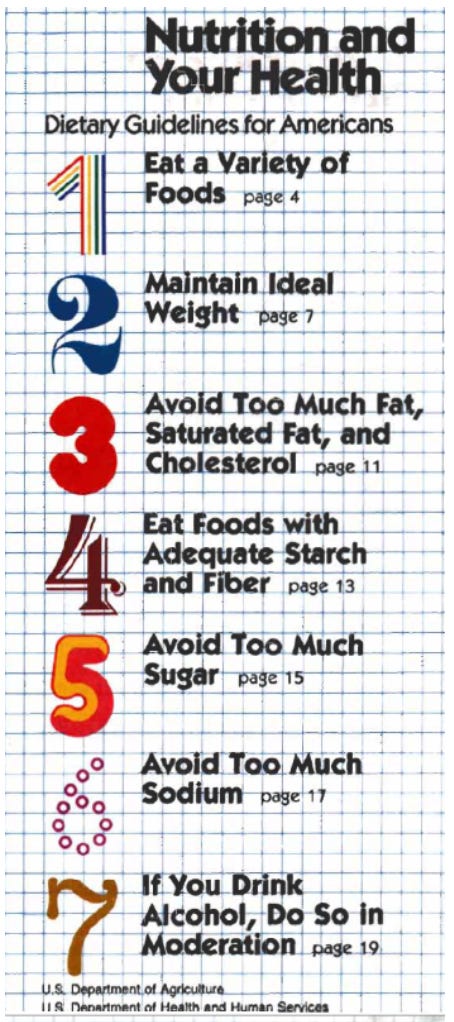A Dietitian's Response and Invitation to Chef Andrew Zimmern
No amount of zeal can replace the value of factual knowledge
Last week, a story was published about the Environmental Working Group (EWG) hosting a webinar that featured Andrew Zimmern, a celebrity chef well known for his television personality on the Travel Channel’s “Bizarre Foods”. I loved that show. It was my original point of immersion into the world of food and culture, setting me up for appreciation of the various eats available to mankind.
Nowadays, Zimmern has expanded far beyond the realm of kitchen’s and culinary shows. At some point, he became involved in food policy activism, aligning himself with organizations and initiatives which call for improvements to food access and the elimination of global hunger. So it came as no surprise to see Zimmern acting in his role as a team member of the EWG, offering remarks and critiques of the current food system.
Here however, is where I find myself conflicted as a dietitian and public health expert. I’m grateful for Zimmern’s engagement and interest in feeding the world, but I was greatly disappointed by the inaccuracies and mischaracterizations embedded throughout his address. He demonstrated great zeal and passion for nutritious food, but it was undermined by minimal or erroneous knowledge of public health and nutrition science. It’s a hard lesson; no amount of zeal can replace the value of factual knowledge.
But at the very least, here is what Zimmern got right.
There is rampant chronic disease plaguing the United States. While we have improved treatments that reduce mortality, we see more cases than ever before for conditions such as heart disease, cancer, kidney disease, and diabetes. Each of these illnesses are driven by lifestyle, and that includes the food we eat, and since food is the primary driver of obesity, more people are asking questions about our food system. The fact is widespread obesity is a (relatively) new phenomenon. Starting in the 1970’s, the obesity rate, then only about 15% of the population, started to trend upward. This trend continued to present time where we now observe a rate of 41.9% of the population.
Say what you will about the limitations of body mass index as a metric; this nation has collectively gotten heavier. And this extra weight we carry is invariably connected to our dietary patterns, lifestyles, and externally constructed environments. Dietitians know this, and despite our efforts and success for treating individual cases, collectively, we’re simply not moving the needle of obesity prevalence on our own.
But back to Zimmern; once he leaves the peripheries of the chronic illness epidemic, his remarks occasionally fall into recitations of tropes and hackneyed talking points reflective of the webinar’s host. In some instances, you could argue and disagree with his perspective, while in others, he was simply incorrect.
For example, he argued that the current Dietary Guidelines for American’s (DGA’s) reflect profit motives. It is for this reason, according to Zimmern, that the guidelines have always downplayed the role of sugar, salt, and ultra-processed foods.
So herein we have three claims…
The DGAs are profit-driven
The DGAs are not concerned with sugar, or salt, or ultra-processed foods
The DGAs do not improve health outcomes
To that first point, I’m certain Mr. Zimmern has absolutely no idea from where or how the DGAs are written. So here is a quick recap.
Every five years, the USDA and the DHHS call for an independently selected and appointed panel of experts, the Dietary Guidelines Advisory Committee (DGAC). These people are vetted for their qualifications, experience, and any potential conflicts of interest. The committee reviews the latest nutrition science, public health data, and comments from the public to make evidence-based recommendations, filing a large report submitted to the USDA and HHS who publish the official findings in consideration of federal priorities and feasibility.
I invite anyone to identify where and how a member of the DGAC is compromised in this process, shoehorning in their brand or food of choice. And please, spare yourself the embarrassment of pointing out how some of these highly trained nutrition scientists previously worked with brands or commodities. If you are surprised that companies will seek the guidance of scientists for improving their products or messaging, who would you rather they turn to?
As for that second point, about the DGAs not concerning themselves with sugar, salt, or ultra-processed foods, please turn your eyes to the screenshot below:
What you see are the original DGAs, first published in 1980. I know it’s hard to discern amidst the miasma of text, but if you look carefully, you can readily make out explicit advice to avoid large quantities of salt and sugar. Why weren’t ultra-processed foods included on this list, you ask? Well that’s probably because the term “ultra-processed foods” was not popularized until the development of the NOVA food classification system, in 2009.
As to the third, tacit claim about the DGAs and their effects on health, the data simply doesn’t agree with Zimmern. When you adhere to the DGAs, you are less likely to die. From everything. That’s what the research shows us.
Honestly though, if misinterpretation of the DGAs were the worst of it, I don’t think this piece would be worth writing. After all, he’s a chef, not a nutrition scientist, and you can easily forgive him for mistaking the two. While there is much more he covers in his webinar, I feel compelled to respond to two particular items.
First, where he states…
I think the last thing I would add is that corporate capture of our dietary guidelines is not some abstract policy concern. It’s the reason the public gets nutrition advice written with a food lobbyist pen. It couldn’t be more obviously wrong. So, until we firewall government agencies from industry money, we’re not going to be getting dietary guidance [italics added]
That is a bold assertion, and I hope he does not take personal the fact that I do not take him seriously on this matter. I can’t. You simply cannot tell me that you are in complete opposition to corporate lobbying, while you are delivering a webinar on behalf of an organization that does an awful lot of corporate lobbying.
For those uninitiated, please see the EWG’s subsidiary organization, the EWG Action Fund, a 501(c)(4) organization.
But perhaps this is justified under the adage of “It’s only bad if someone else does it!”. Perhaps Zimmern considers himself or his webinar host, the EWG, to be moral arbiters of food activism, and thereby entitled to participate in corporate lobbying.
Well, again, I would disagree. More than that, I would say that for the sake of humanity, we would all be better off if the EWG were to shrivel into a compacted mass, fall into a flooded gutter, ride the current until falling in between the metal slats of a storm drain, where it would then be carried into the city’s drainage system and forever lost to mankind.
I have rewritten that previous paragraph several times now, and that is the kindest way I can phrase my sentiments about the EWG.
The absolute gall of an organization that lies directly to consumers, right on their webpage. Dear ladies and gentlemen, organic crops also use synthetic pesticides. Buying more expensive organic produce does not change that fact.

Regarding the use of pesticides, or other agrochemicals, I could go on about the rigorous testing, the evaluations for safety, the complexity of approving their commercial use, the required residue limits, and so on, but instead I’ll opt for a slightly more emotive, yet factual statement.
If organic agriculture became the law of the land, or pesticides and other agrochemicals were set to limited terms of which the EWG approves, there would be a famine in this country. If you desire a robust food system that feeds hundreds of millions of people, you need pesticides, and fungicides, and agrochemicals. If you think otherwise, ask Sri Lanka how their experiment of going organic fared.
And there is one last thing I would say to Andrew Zimmern should he ever take interest. Please avoid denigrating yourself and millions of American’s by adopting one of RFK Jr.’s favorite phrases from his days as an environmental lawyer. The phrase of “industrial agriculture”, also sometimes referred to as “factory farming”.
In short, leave farmers alone.
My role as a dietitian, and Zimmern’s role as a chef, are bound by the common tie of being luxury professions whose existence depends upon the modern food system. I would not have patients to counsel, policies to encourage, science to conduct, were it not for a robust food supply. Zimmern’s culinary skills and outright advocacy for expanded access would not exist were it not for so much food being produced in the first place.
We owe a great debt of gratitude to those men and women, far better than simply reducing them to corporate schlubs. Our efforts would be feckless exercises were it not for this less than 2% of the nation that feeds everyone else.
Lastly, I have an invitation to anyone that carries the zeal and passion of Zimmern but lacks the technical know-how and scientific basis.
Just ask us. We’re ready to talk. In fact, we love to talk about it. Food, food policy, health, good dietary behaviors, improved food access; there’s a good group of us out there, and we’ve been talking about this stuff for a long time.
We also know better than most how zeal does not translate into authority, or accuracy, or effectiveness. And of course, I’m certain there are items we can learn from you, whatever your course or current training.
Bring your passion, bring your skill, bring your experience, but above all, bring your determination to find how zeal and evidence can work together to make sure we build a food system that nourishes us all.



